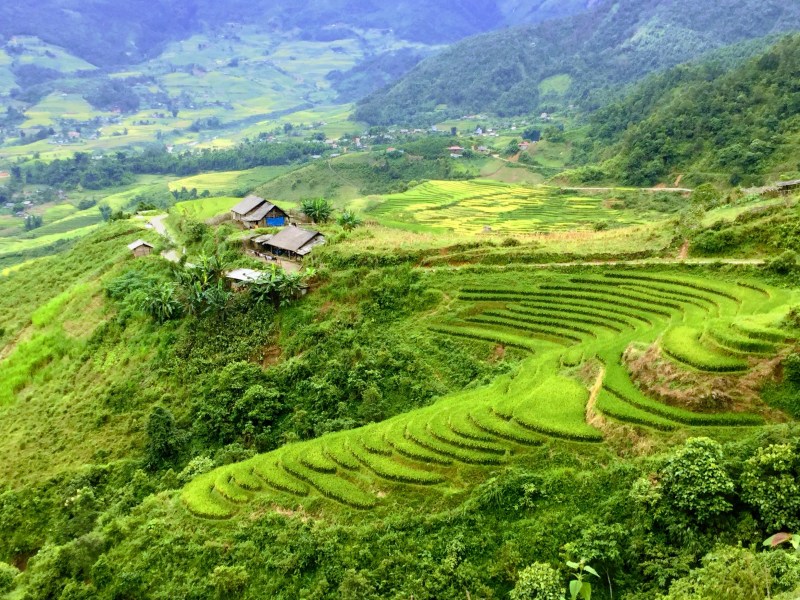
As you know, ecotourism is one of the topics we talk about the most on our website and blog. Why? For a very simple reason: we firmly believe that ecotourism is the present and also the future of what we now understand as conventional tourism.
For this reason, both from our own blog and from the tourist activities that we offer to the public, we try to promote a quality, responsible and environmentally committed ecotourism. We are committed to enjoying our free time, holidays and leisure time while respecting the wonderful nature that surrounds us and that we want to give to our descendants in much better health than they are right now.
But… What exactly do we call “ecotourism”? What characteristics must a tourist activity have in order to be considered ecological and responsible? Why do so many people prefer ecotourism to mass tourism? The answers to these and other interesting questions in this article, a text that we hope will clarify many facts about ecotourism and also encourage you to practice it with us. Shall we start?
What is ecotourism?
If you type in your search engine the words “define ecotourism” you will find about 425,000 results. Don’t you believe it? Take the test.
Ecotourism is a highly sought-after keyword, a term that people want to know more about for a very simple reason: it’s talked about a lot, but it’s not clear what exactly it means. We will try to solve it by writing down some of the definitions that seem to us to be more accurate:
The WTO – World Tourism Organization – offers us a long definition of ecotourism, a broad paragraph that we could summarize as “nature-based tourism that seeks to protect natural areas and enhance respect for and preservation of the rural lifestyle”.
In the Wikipedia we also find an accurate definition of ecotourism or ecological tourism that we copy and paste literally: “A style of alternative tourism different from traditional tourism (…) in which sustainability, preservation, appreciation of the environment is privileged…”.
One more definition of the term ecotourism, this time extracted literally from TIES – The International Ecotourism Society -: “Responsible travel to natural areas to conserve the environment and improve the well-being of local people.
Want to see more definitions of ecotourism? Click here to read our article “Ecotourism definition and more”.
What are the main characteristics of ecotourism?
The most serious and rigorous definitions of the term ecotourism do not limit themselves to explaining in one line what this type of tourism consists of, but they extend the explanation by noting the fundamental characteristics of this alternative tourism to help us distinguish the real ecotourism proposals from those that are not.
It is an interesting approach so we have decided to do the same.
- It respects the flora and fauna of the tourist destinations without altering in any way the ecosystem in which they are developed.
- It helps to preserve and even improve foreign energy resources, communication routes, the quality of the land, water and air, etc.
- It transmits knowledge about nature and the living beings that make it up, knowledge about biology, fauna, flora, etc., which helps to better value the wealth of biodiversity that surrounds us.
- It reduces the negative impact of the influx of uncontrolled mass tourism.
- Attracts economic funds that contribute to the development of professionals and companies that choose to live and work in rural areas.
- Promotes economic development by helping to generate employment among young people in communities far from urban centres.
- It contributes to improving the working and economic conditions of women living in non-urban areas.
- It actively contributes to the preservation and improvement of the living conditions, culture and local traditions of rural communities.
- Etc.
The summary table above serves as a basis for noting some examples of “real” ecotourism proposals. You know what I mean: the keys that will help us to differentiate the proposals of ecotourism activities of authentic quality from those that are just another advertising claim. We also see it in the form of a table:
Examples of quality ecotourism proposals
- Stays in ecological hotels, facilities that respect 100 % the fauna, the flora, the use of the sun, the wind and the water as energetic resources, the use of the land to create ecological gardens, etc.
- Trips to learn more about local traditions in rural areas: agricultural fairs, exhibitions of tools and machinery, tasting days for high quality organic products, etc.
- Visits to sustainable and ecological farms where grown-ups can discover the life cycle of farm animals raised in respect.
- Tourist routes with vehicles that neither pollute nor damage in any way the layout of the old rural roads and paths.
- Interactive visits to ecological gardens and permaculture facilities to learn first-hand about the life cycle of healthy, ecological and local food.
Ecotourism as sustainable tourism
Now that we are clear about what ecotourism is and how to differentiate those quality ecotourism proposals, it is time to go a little bit deeper. How? By talking about ecotourism from the point of view of its sustainability.
What do the experts mean when they equate ecotourism with so-called sustainable tourism?

Taking into account this definition, we will see that by labelling ecotourism as sustainable tourism we explicitly state that ecotourism shares the three pillars on which so-called sustainability is based: the social pillar, the economic pillar and, of course, the environmental pillar. Why and how?
- Ecotourism promotes social sustainability by supporting the personal and professional development of people living in rural areas far from the opportunities of large urban centres. Attracting quality tourism to a rural area brings the inhabitants of these remote villages closer together and encourages rural communities to improve their living conditions without altering their ancestral traditions and customs, which are often forgotten or even reviled.
- Ecotourism promotes economic sustainability as it encourages employment and self-employment of disadvantaged groups (youth, women, etc.), the creation of responsible businesses related to active tourism, the reuse of crops and gardens abandoned by the rural exodus of past decades, etc.
- Ecotourism promotes environmental sustainability by reducing the negative impact of mass tourism that does not respect the laws of conservation and preservation of nature (coasts, rivers, borders, orchards, forests…). The different educational and informative ecotourism activities also promote the intelligent use of natural and non-polluting energy resources, the cleanliness of seas and rivers, the non-use of harmful plastic containers, the awareness of recycling and reuse practices of everyday objects to give them a second life, etc.
In summary: ecotourism is a sustainable and responsible tourism from the social, economic and environmental point of view; a tourism that acts in the present without losing sight of the future; a quality tourism that, if you think about it, is the only alternative to the unstoppable growth of local, national and international tourism.
What are the main benefits of betting on ecotourism?
Betting on ecotourism has multiple benefits both for the ecosystem and for all the actors involved in some way in this type of tourism: the tourists themselves and their families, tour operators and hotels and, of course, the all too often forgotten rural communities.
Let’s see what benefits betting on ecotourism has for each of these three targets or objective public: tourists, professionals of the tourism sector and inhabitants of rural communities.
Main benefits of ecotourism for tourists and their families
More and more tourists are rejecting mass tourism, classic sun and beach offers or typical mass excursions to typical tourist destinations. The differentiating characteristics of ecotourism are a ball of oxygen for many families and groups of tourists who are looking for fresh air, tranquillity and alternative leisure away from the crowded tourist proposals and, sometimes, harmful to both personal health and the health and tranquillity of the neighbours in the excessively touristy neighbourhoods.
An added benefit for families with children is the immense amount of values that they can easily transmit to the youngest through the different activities related to ecotourism, from respect for nature, flora and fauna to environmental awareness, saving resources, the value of recycling and reusing materials…
Many of the ecotourism activities have a positive impact on the physical and mental health of the tourists who take part in them: tasting of ecological and local gastronomy products, workshops and meditation days in nature, educational tours in forests and trails, outdoor sports practices…
